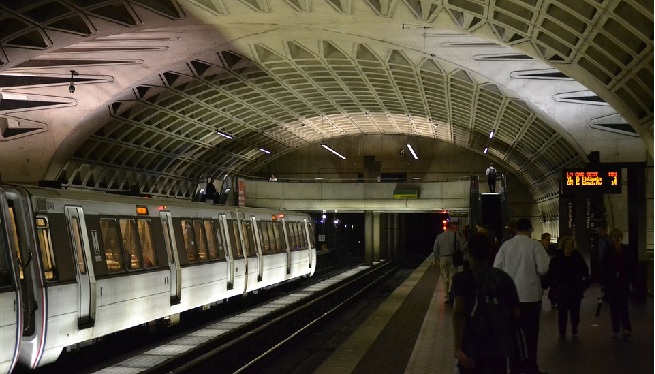WASHINGTON (WMAL) — A 10-2 vote from the council officially overrode Mayor Muriel Bowser’s earlier veto of the council’s fare evasion legislation, effectively turning jumping a Metro faregate into a fifty dollar civil fine, rather than keeping it a criminal offense.
Metro had lobbied heavily to maintain the criminal penalties for fare evasion, arguing that it was an effective deterrent that, if removed, would cost the agency millions of dollars.
Several councilmembers who voted to override the veto disagreed with that argument, saying that the agency didn’t provide enough data to support that position.
“Let’s be honest: jumping a fare gate and not paying a parking meter are the same offense,” argued At-Large Councilmember Robert White before the vote. He and others decried the policy, saying that it disproportionately affected people of color and the poor – burdening them with criminal records for what they say is a minor offense.
“We are slowly dismantling an unfair system,” said Ward 1 Councilmember Brianne Nadeau. “The more we commit to using the lens of race-equity in all we do in Government, the sooner we will be able to rectify the real crime here – which is perpetuating racist systems in our own Government.”
The two votes against the override came from Metro Board Chair Jack Evans and Council Chairman Phil Mendelson.
“The [fare evasion bill] fails to set up a new civil adjudicated process,” Mendelson said. “So it will be difficult if not impossible for WMATA to impose the new civil fines. Why is that okay?”
Mendelson then said that WMATA bus service loses about $25 million dollars a year.
“Assuming similar behavior on MetroRail,” Mendelson continued, “the public Treasury is losing perhaps $50 million dollars each year to theft.”
Mayor Muriel Bowser, speaking at an unrelated press conference after the Council’s vote, stood by her decision to veto the bill the first time around:
“I am concerned about making sure that everybody follows the rules of the road — or the rules of the MetroRail, as it were,” she said.
She did say she was willing to work with the council on finding subsidy solutions, citing programs that allow students to ride the transit system for free.
The bill now must now go through a 30 day congressional review period, a standard process for all DC laws. After that, it’s set to become the law of the land.
Copyright 2019 WMAL and WMAL.com (Photo: Pixabay)





















